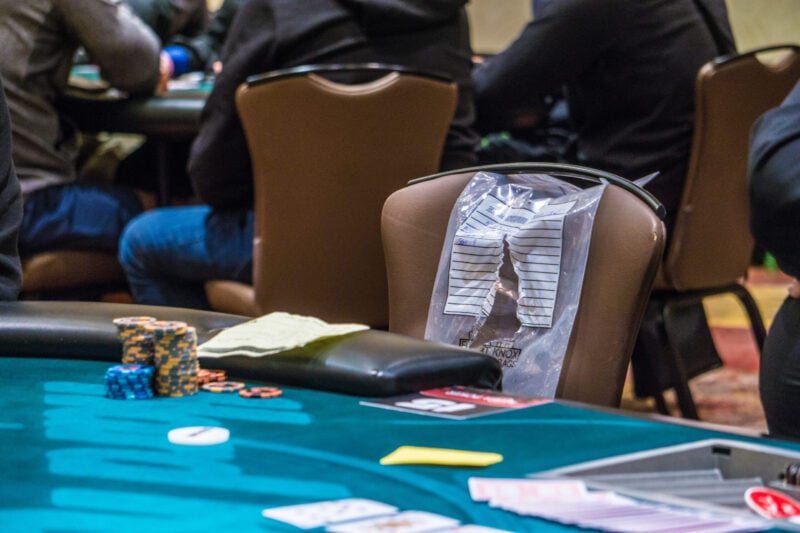A number of high-profile players have recently been calling for a poker blacklist, and the community response has been wildly positive. So why don’t we have something like this? Almost everyone likes the idea, and cheating is a huge problem, so why can’t we create a list of known cheats who are banned?
The answer, like the game itself, is more complicated than you might think.
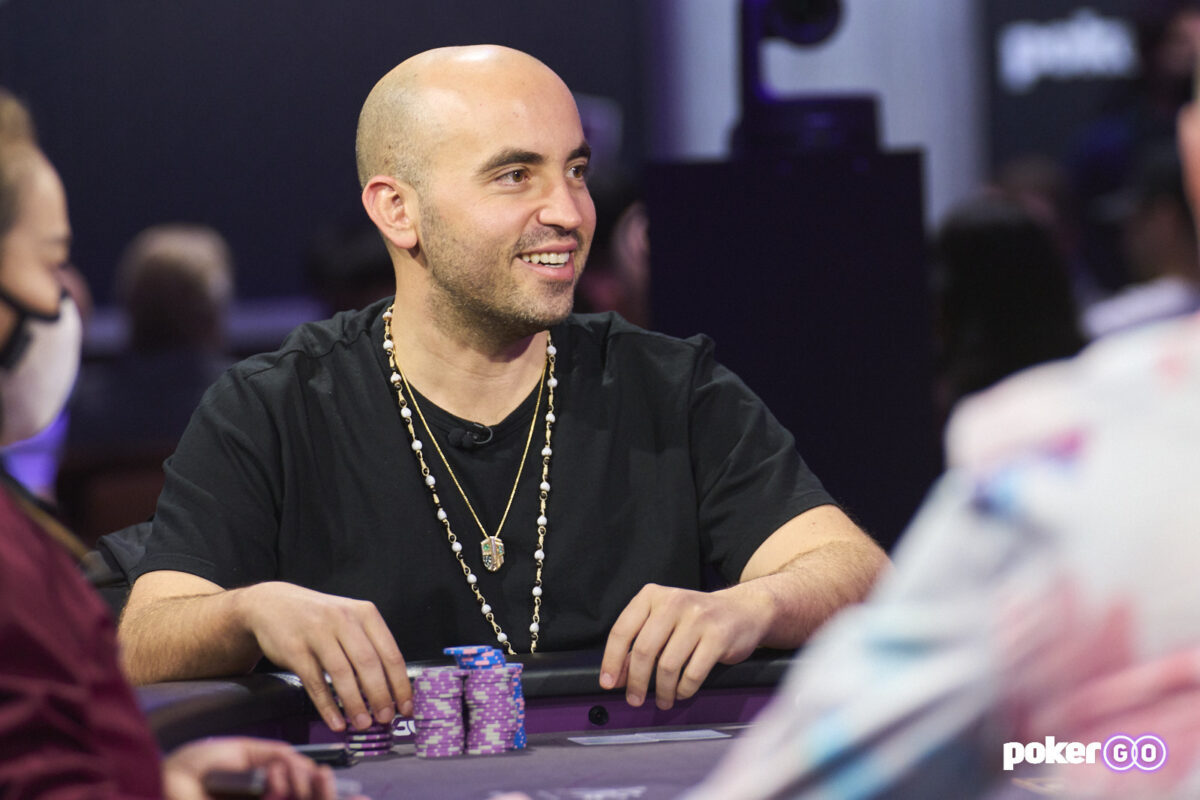
Like most players, I too would love to see cheaters banned from all casinos and online poker sites. Not only would it be a wonderful bit of justice, but it would take some strong players out of the game because most of the accused cheats play well.
I think there are many reasons why accused cheaters tend to be good players. They are obviously willing to do whatever it takes to win and are usually obsessed with poker, and they’re smart enough to figure out how to make cheating work for them. But the biggest reason is that most of the players who have been accused of cheating over the past few years are accused of using real-time assistance or RTAs.
RTAs are clearly cheating, but they’re also an amazing training resource. These players have played thousands of hands with the assistance of a database of pre-solved solutions. With so many repetitions, they likely have a better understanding of what a solver would do in any given situation than almost anyone on the planet.
So what would it take to get these solver wizards, who have cheated so many players, banned from the game we love?
Choosing the blacklisters
The first major hurdle to address is the issue of who would be in charge of the blacklist. Would we need to create a governing body for poker or contract with an independent third party to manage and maintain the list? Could the poker community agree on some respected members of the industry that most of us would trust? And, is there any chance these people would take the job and the hassles and lawsuits that it would surely entail?
Let’s use Phil Galfond as an example since his name has come up as someone who could facilitate a list like this. Do we really think Phil wants to take on a part-time job that pays nothing, distracts him from his other projects, exposes him to legal problems, and makes him dozens of enemies in the high-stakes poker world? No, he does not. And neither do any of the other big names who might be good options for creating or vetting a list of banned players.
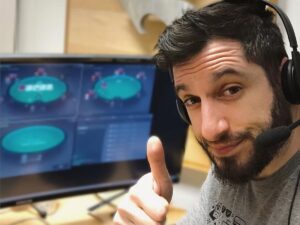
Legal challenges with a poker blacklist
I have my own thoughts about the legal issues that a blacklist would run into, but I also have a great resource in Mac Verstandig, a friend and poker-playing lawyer who has worked with a ton of poker pros. A quick call with Mac confirmed my suspicions, and he was able to give me names for many of the legal hurdles that a blacklist would face.
In the United States, we have what is known as the “American Rule,” which means that each party in a lawsuit pays their own legal fees. There are exceptions to this, but they are rare in libel cases, which is most of what a blacklist challenge would entail. This is opposed to the “English Rule” where the loser pays the winner’s legal fees. There are arguments for both sides, but we are left with the reality that we live with the American Rule, which means that defending endless libel suits would cost the owner of a poker blacklist a lot of money, most of which could never be recovered.
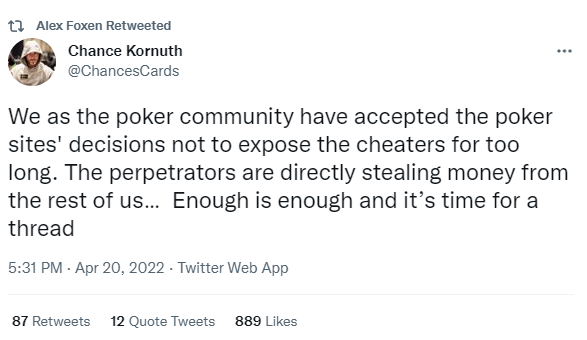
And anyone named on a poker blacklist would be likely to sue. Even if we were careful with saying things like “suspected of cheating” or “accused of cheating by players X and Y,” the blacklist’s owner would still have to defend the suits. It’s likely that the blacklist’s owner could win every one of those suits and still go broke immediately.
Put yourself in the dirty shoes of an accused poker cheat. You would sue, wouldn’t you? I would. Because then you have defended your name, and hopefully, busted the creators of the blacklist. Even if you lose, you can claim that “I couldn’t prove that I didn’t cheat, so they won. The system is rigged against me.” Most people wouldn’t give that any credence, but it would at least give you something to hang your hat on when someone calls you a cheat.
Enforcement problems
The second problem with a poker blacklist is that it likely wouldn’t accomplish anything. Few, if any, venues would ban players regardless of the proof a blacklist was able to provide. Russ Hamilton admitted to cheating players out of millions on video. Brynn Kenney admitted to ghosting players, and there are dozens of other clear examples where players have admitted to their shady behavior, but poker rooms welcome them and the rake that they pay.
Any room banning a player because of a blacklist would likely face lawsuits as well. They would probably win those lawsuits based on the idea that they can ban anyone they want, but that old American Rule would apply to them as well, and they would be spending money to keep a player from coming into their room and paying rake — something I just don’t see poker rooms doing.
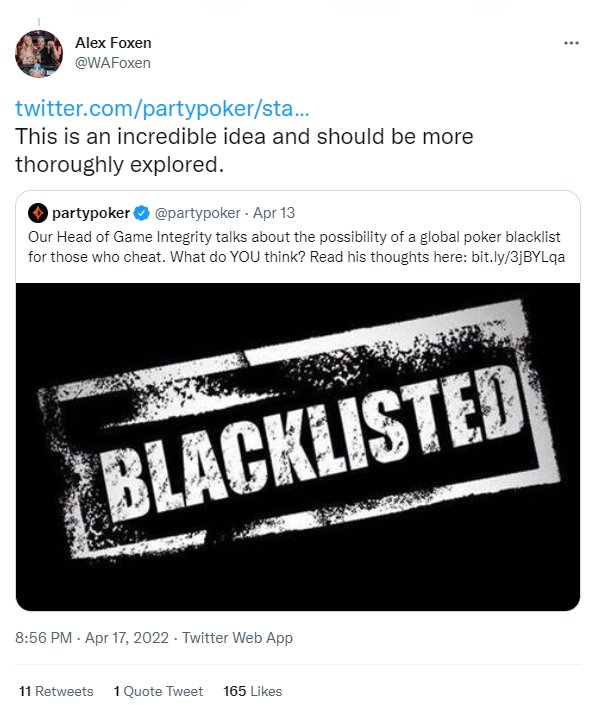
And there’s no real incentive for the rooms to ban these players. From a business perspective, not having cheaters in their room does nothing for them. We would love to see them do it for the integrity of the game, but the dollar is king, and that integrity wouldn’t be profitable.
“But we would boycott the rooms that allow cheats,” you say?
Maybe you would. Maybe you’re the one in 1,000 players with enough conviction and integrity to stop playing in the rooms that don’t enforce the blacklist. But a boycott means nothing if the vast majority of people ignore it.
I didn’t play at the Venetian for many years while Sheldon Adelson was spending millions to make online poker illegal. It was probably the most successful boycott in the history of poker, and by that, I mean that it had no real effect on the Venetian’s poker room at all. They grew and grew because most players don’t care about a boycott. They just want to play poker.
So, while you could proudly tell everyone that you only play at rooms that enforce the blacklist, you would just be restricting your options without putting any kind of dent in the income of those poker rooms because almost no one would join you.
No easy solution
So, is the idea of creating a poker blacklist really as hopeless as it sounds? Probably, yes.
I honestly don’t think it’s likely that we will see a blacklist with real teeth any time soon, but there are ways around some of these problems. They’re not likely and they’re not easy, but they are possible. And there are an awful lot of smart people who could work on finding solutions.
First, if this is going to work, we would need a lot of public sentiment behind the blacklist, which means we need big names to be part of the movement. And no, Chance Kornuth and Alex Foxen aren’t enough, though their efforts are certainly appreciated. We need Phil Hellmuth, Doyle Brunson, Doug Polk, and Joe Ingram — players who can put some huge numbers behind this thing. And they would need to say that they are boycotting and expecting everyone else to boycott every room that doesn’t enforce the blacklist.
We also need to deal with the legal issues, which means at least a small legal defense fund. And the list would probably need to be maintained somewhere that doesn’t have the American Rule. An organization based in England could defend this kind of list a lot better than one based in America.
We would need the media outlets to spread the word and report on what the big names were saying. I know I’m up for the fight and my editor here at CardsChat would have my back as he has with other stories. I’m sure I could send a few articles over to CardPlayer Lifestyle as well. And I have no doubt that my pals Chad Holloway and Matt Hansen would help out over at Poker News. If this thing happened, I think it would be a big enough story that every poker-related news outlet, and probably some national outlets as well, would talk about it.
We need all of those things to get the word out to the casual player because there are a lot more of them than there are pros. Without the recreational players, a boycott would be worthless. But if we could convince them that it was shameful to play in a room that allows cheats, we could actually give this thing a chance.
I didn’t ask Mac about this, but I know that he cares about the integrity of the game and I suspect that he would offer at least a little free legal advice. I imagine other poker-playing lawyers like Dutch Boyd, Jamie Kerstetter, or Greg Raymer could help out, but we would likely need a lawyer from the UK or another country where the American Rule doesn’t apply.
This article certainly doesn’t cover all of the possibilities for creating a list of undesirables, but I hope it is a meaningful contribution to the conversation. And while I wouldn’t bet on a working blacklist any time soon, I would love to see it. I’m sure you would too.
